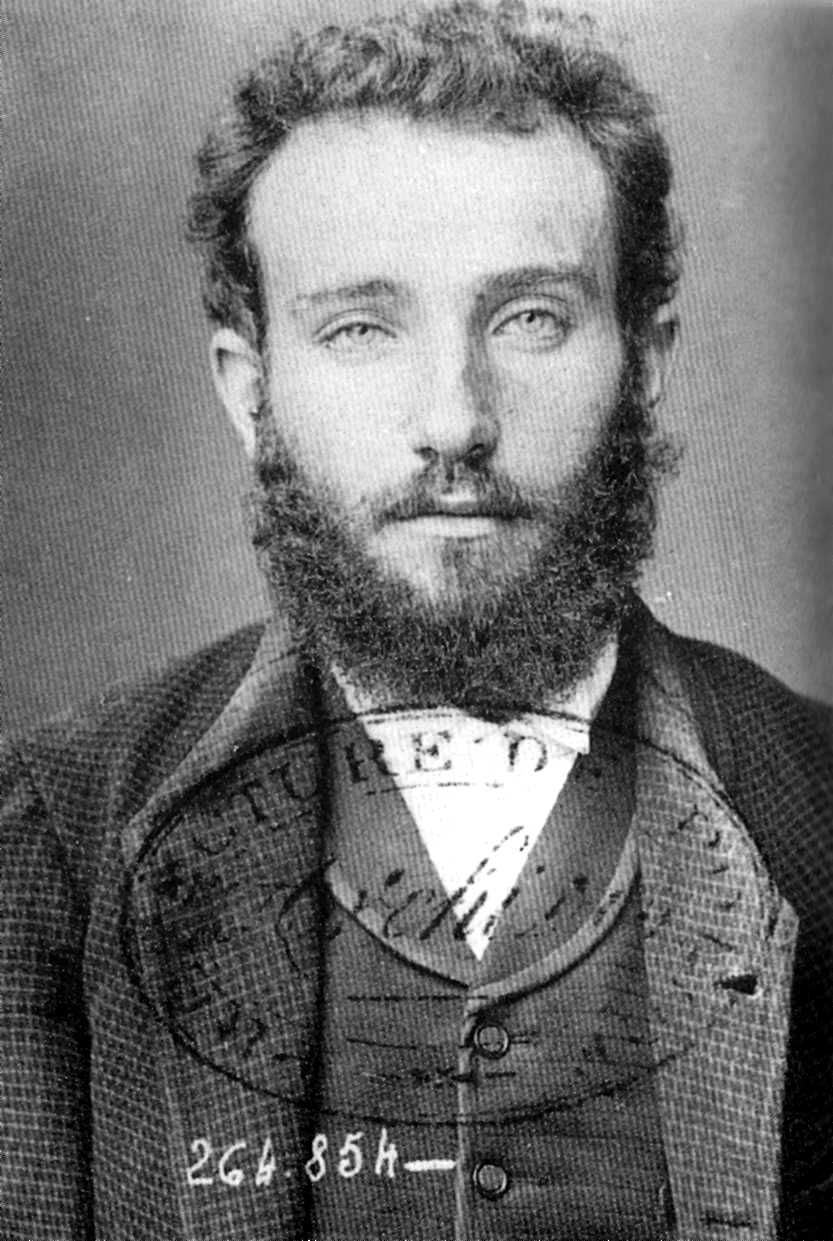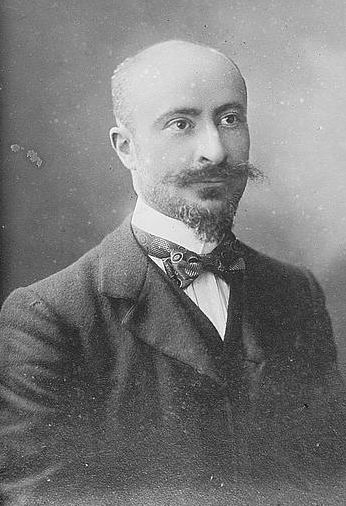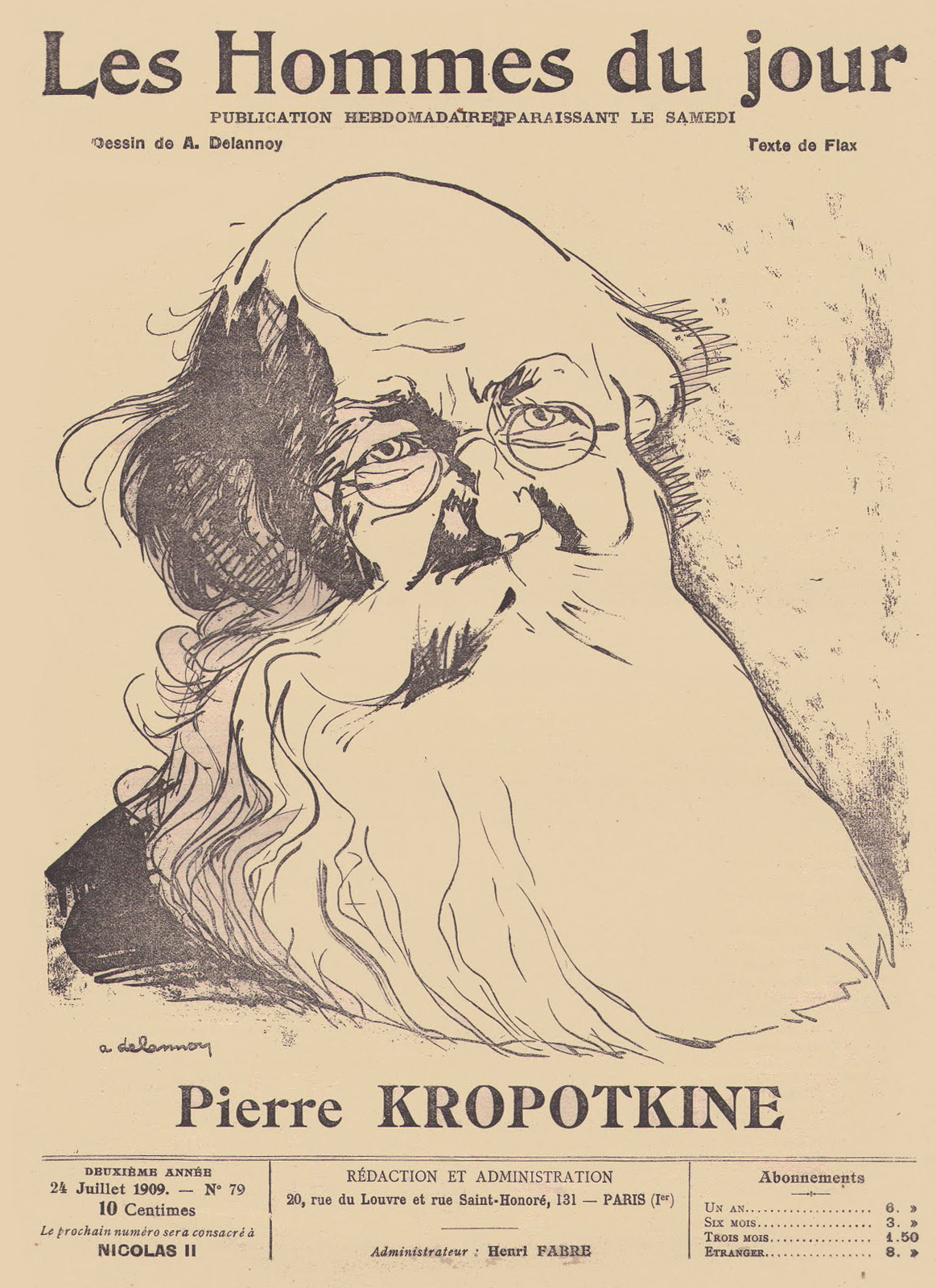|
Association Internationale Antimilitariste
The ''Association internationale antimilitariste'' (''AIA''; International Anti-Militarist Association) was a pacifist association founded in Amsterdam in 1904 that was dedicated to fighting militarism. Although technically open to all political views, it was dominated by anarchists. The members agreed that the workers should revolt if war were declared, but disagreed on whether soldiers should desert. They were subjected to police surveillance and arrests. By 1908 the association had few remaining members. Background In December 1902 Georges Yvetot was one of the founders of the ''Ligue antimilitariste'', along with fellow anarchists Henri Beylie, Paraf-Javal, Albert Libertad and Émile Janvion. The ''Ligue antimilitariste'' was to become the French section of the ''Association internationale antimilitariste'' (AIA). Beylie was secretary-treasurer of the league. In 1903 he published the brochure ''Le militarisme. Ses causes, ses conséquences, les moyens de le combattre''. Fo ... [...More Info...] [...Related Items...] OR: [Wikipedia] [Google] [Baidu] |
Georges Yvetot
Georges Louis François Yvetot (20 July 1868 – 11 May 1942) was a French typographer, anarcho-syndicalist and anti-militarist. He was secretary general of the '' Fédération des Bourses de travail'' (Federation of Workers' Councils) and deputy secretary general of the ''Confédération générale du travail'' (CGT – General Confederation of Labour) in the period leading up to World War I (1914–18). He kept a low profile during the war, and in 1918 was dismissed from the CGT leadership. After the war he contributed to many anarchist journals. He died in poverty during World War II (1939–45). Early years Georges Louis François Yvetot was born in Paris on 20 July 1868 to a father of Norman origin. He was born in the Minimes barracks, where his father was a gendarme. His mother died, and then his father, while he was young. He was raised by the Brothers of Christian Doctrine and the Auteuil center for orphan apprentices, where he trained as a typographer from 1880 to 1887. H ... [...More Info...] [...Related Items...] OR: [Wikipedia] [Google] [Baidu] |
Henri Beylie
Henri Félix Camille Beaulieu (known as Henri Beylie; 30 November 1870 – 1944) was a French accountant, naturist, anti-militarist, anarchist and then communist. He wrote many articles in radical journals. In his later years he was active in the Committee of Social Defence (CDS), an organization that helped political prisoners and exiles. Early years Henri Félix Camille Beaulieu was born in Paris on 30 November 1870. His parents were Charles Beaulieu and Jeanne Beylie. a seamstress. At a young age, he was a non-commissioned officer in the African Battalions, but was dismissed for "collective revolt and protest". On returning to the metropolis, he mixed in libertarian circles in Montmartre and began to publish articles in ''La Revue Libertaire'' (1893–94). After anarchists staged several attacks in Paris in 1893, there was a wave of arrests. In January 1894, Beylie, Henri Gauche and Henri Guerin were arrested questioned by a judge. Gauche and Guerin were the editors of ''La revu ... [...More Info...] [...Related Items...] OR: [Wikipedia] [Google] [Baidu] |
Albert Libertad
Joseph Albert (known as Albert Libertad or Libertad) (24 November 1875 – 12 November 1908) was an individualist anarchist militant and writer from France who edited the influential anarchist publication ''L'Anarchie''. Life and work He was born in Bordeaux, and died in Paris. Abandoned by his parents as a baby, Libertad was a child of the Public Assistance in Bordeaux. As a result of a childhood illness, he lost the use of his legs, but put his handicap to good use, using his crutches as weapons against the police. He moved to Paris at 21, where he soon became active in anarchist circles, going so far as to live in the offices of the journal "Le Libertaire." A member of various anarchist groups, and a supporter of "propaganda by the deed," he was nevertheless an abstentionist candidate in Paris's 11th arrondissement in 1902 and 1904, seeing his candidacy as a means of spreading anarchist ideas. During the Dreyfus affair, he founded the Anti-Militarist League (1902) "and, along wit ... [...More Info...] [...Related Items...] OR: [Wikipedia] [Google] [Baidu] |
Émile Janvion
Émile Janvion (10 April 1866 – 21 July 1927) was a French teacher, an anarcho-syndicalist leader, a founder of the ''Confédération générale du travail'' (CGT) and a leader of the anti-militarist movement. He came to hold national syndicalist views that prefigured fascism. He was anti-Semitic, hostile to freemasonry, hostile to the republic and flirted with monarchism. However his main goal was the nationalization of the land and of the means of production. Life Early years Émile Janvion was born on 10 April 1866 in Mâcon, Saône-et-Loire. He was given the nickname "''Pisse-vinaigre''" (vinegar piss). In 1893 he founded the first syndicate of employees of the prefecture. Janvion was one of the founders of the ''Confédération Générale du Travail'', (CGT – General Confederation of Labor). In 1896 he contributed towards the Parisian anarchist newspaper ''Le Père Duchêne''. In 1897 Janvion and Jean Degalvès founded the ''Ligue d'enseignement libertaire'' (League of L ... [...More Info...] [...Related Items...] OR: [Wikipedia] [Google] [Baidu] |
Ferdinand Domela Nieuwenhuis
Ferdinand Jacobus Domela Nieuwenhuis (31 December 1846 – 18 November 1919) was a Dutch socialist politician and later a social anarchist and anti-militarist. He was a Lutheran preacher who, after he lost his faith, started a political fight for workers. He was a founder of the Dutch socialist movement and the first socialist in the Dutch parliament. Biography Ferdinand Domela Nieuwenhuis was born in Amsterdam, the son of Ferdinand Jacob Domela Nieuwenhuis, Lutheran pastor and professor of theology, and Henriette Frances Berry. When Nieuwenhuis was ten years old, his mother died. His brother was art collector Adriaan Jacob Domela Nieuwenhuis. His family added the second surname "Domela" in 1859. After he died in Hilversum at the age of 72 on 18 November 1919, he was one of the first to be cremated and interred at Westerveld in Velsen. His funeral procession, attended by 12,000 sympathizers, traveled through Amsterdam.NRC, 22 November 1919, avondblad References Notes Citat ... [...More Info...] [...Related Items...] OR: [Wikipedia] [Google] [Baidu] |
Charles Malato
Charles Malato (1857–1938) was a French anarchist and writer. He was born to a noble Neapolitan family, his grandfather Count Malato being a Field Marshal and the Commander-in-Chief of the army of the last King of Naples. Though Count Malato ferociously suppressed a popular anti-dynastic insurrection, his son – Charles' father – supported the communards of the Paris Commune, and was banished as a result to the penal colony of New Caledonia, where Charles was born. After the amnesty of anarchists and communists, Charles and his by that time ninety-year-old father returned to Paris, where they immersed themselves in the anarchist movement. On his return to France, Malato was condemned to fifteen months in prison for inciting murder, pillage and arson, and instead went into exile in London. Malato collaborated briefly with Victor Henri Rochefort, Marquis de Rochefort-Luçay before they fell out over the Dreyfus affair (Rochefort was an anti-Dreyfusard). He wrote for George ... [...More Info...] [...Related Items...] OR: [Wikipedia] [Google] [Baidu] |
Urbain Gohier
Urbain Gohier (born Urbain Degoulet, December 17, 1862 in Versailles – June 29, 1951) was a French lawyer and journalist best known for his publication of the anti-Semitic forgery ''The Protocols of the Elders of Zion'' in France. His pen name for two books was Isaac Blümchen. Orphaned as a young man, Gohier took the surname of his adoptive father, and the issue of his family origin remained a lifelong personal issue. A brilliant high school student at Collège Stanislas in Paris, he obtained a BA and a law degree. In 1884, he became editor of the royalist daily ''Le Soleil''. In 1897, upon the foundation of the socialist daily ''L'Aurore'', its director Ernest Vaughan called Gohier to join the writing team. He became a leading journalist there, along with Georges Clemenceau. An indefatigable pamphleteer, Gohier - a "monarchist-unionist" - maintained a policy that was pro-Dreyfus, anti-Semitic, anti-militarist, and socialist. He took a strongly anti-military posi ... [...More Info...] [...Related Items...] OR: [Wikipedia] [Google] [Baidu] |
Victor Méric
Victor Célestin Méric was the pseudonym of Henri Coudon (10 May 1876 – 10 October 1933), a French journalist and libertarian author. He contributed to various anarchist journals before World War I (1914–18). Despite being a pacifist, he served in the army during the war. Afterwards he joined the French Communist Party, but was expelled in 1923 for his pacifist convictions. He wrote a number of books, both fiction and non-fiction, and founded the ''Ligue internationale des combattants de la paix'' (LICP: International League of Fighters for Peace). Life Henri Coudon was born in Marseille on 10 May 1876 into a progressive-minded family. He moved to Paris, where he joined anarchist circles and took the pseudonym Victor Méric. He contributed to ''Le Libertaire'', where he became a friend of Gaston Couté and Fernand Desprès. He was one of the founders of the ''Association internationale antimilitariste'' in 1904. In 1906, Méric joined the revolutionary socialists and contr ... [...More Info...] [...Related Items...] OR: [Wikipedia] [Google] [Baidu] |
Miguel Almereyda
Eugène Bonaventure Jean-Baptiste Vigo (known as Miguel Almereyda; 5 January 1883 – 14 August 1917) was a French journalist and activist against militarism. He was first an Anarchism, anarchist and then a socialist. He founded and wrote in the newspaper ''La Guerre sociale'' and the satirical weekly ''Le Bonnet rouge''. During World War I (1914–18) he engaged in dubious business dealings that brought him considerable wealth. He became engaged in a struggle against right-wing forces, and was eventually arrested on the grounds of being a German agent. He died in prison at the age of 34, almost certainly murdered. He was the father of the film director Jean Vigo. Early years Eugène Bonaventure Jean-Baptiste Vigo was born on 5 January 1883 in Béziers, Hérault, France. His father was engaged in trade, born in Saillagouse, and his mother Marguerite Aimée Sales was a seamstress from Perpignan. The family originated in Err, Pyrénées-Orientales. His grandfather, from a family of m ... [...More Info...] [...Related Items...] OR: [Wikipedia] [Google] [Baidu] |
Confédération Générale Du Travail
The General Confederation of Labour (french: Confédération Générale du Travail, CGT) is a national trade union center, founded in 1895 in the city of Limoges. It is the first of the five major French confederations of trade unions. It is the largest in terms of votes (32.1% at the 2002 professional election, 34.0% in the 2008 election), and second largest in terms of membership numbers. Its membership decreased to 650,000 members in 1995–96 (it had more than doubled when François Mitterrand was elected president in 1981), before increasing today to between 700,000 and 720,000 members, slightly fewer than the Confédération Française Démocratique du Travail (CFDT). According to the historian M. Dreyfus, the direction of the CGT is slowly evolving, since the 1990s, during which it cut all organic links with the French Communist Party (PCF), in favour of a more moderate stance. The CGT is concentrating its attention, in particular since the 1995 general strikes, to tra ... [...More Info...] [...Related Items...] OR: [Wikipedia] [Google] [Baidu] |
Saint-Étienne
Saint-Étienne (; frp, Sant-Etiève; oc, Sant Estève, ) is a city and the prefecture of the Loire department in eastern-central France, in the Massif Central, southwest of Lyon in the Auvergne-Rhône-Alpes region. Saint-Étienne is the thirteenth most populated commune in France and the second most populated commune in Auvergne-Rhône-Alpes. Its metropolis (''métropole''), Saint-Étienne Métropole, is the third most populous regional metropolis after Grenoble-Alpes and Lyon. The commune is also at the heart of a vast metropolitan area with 497,034 inhabitants (2018), the eighteenth largest in France by population, comprising 105 communes. Its inhabitants are known as ''Stéphanois'' (masculine) and ''Stéphanoises'' (feminine). Long known as the French city of the "weapon, cycle and ribbon" and a major coal mining centre, Saint-Étienne is currently engaged in a vast urban renewal program aimed at leading the transition from the industrial city inherited from the 19th ... [...More Info...] [...Related Items...] OR: [Wikipedia] [Google] [Baidu] |







